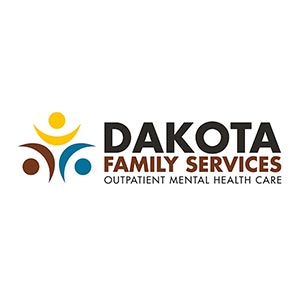By Courtney Redman, LMSW, Therapist
Dakota Family Services
Pregnancy and being a new parent can be the most exciting experience you will ever have. It can also be confusing and challenging, which can take a toll on your mental health. For some, the challenges arise long before the arrival of the baby. For others, they come after, when you start to experience the highs and lows of parenting. Whether you are a mom, dad, or partner, know you are not alone.
Here are some tips to help you navigate your and your family’s journey.
Common Struggles for New Parents
Many of the stresses and struggles that accompany the family planning journey are completely normal—you might be familiar with the terms “baby blues” and “postpartum depression.” However, perinatal mental health challenges can begin long before your little one arrives and can impact moms, dads, and partners. It is common for parents to feel anxious, depressed, overwhelmed, or burnt out during the perinatal period. You may look into the future and worry what life will look like or wonder, “What kind of parent will I be?” You may worry about whether your baby is getting enough attention or if you’re doing things the “right way.” You are not alone.
Managing the Stress
Ask for help. One of the best ways to manage your stress is to understand the people and resources available to support you—family, friends, mental health providers, and community resources. Whether it’s giving you a space to share, providing you with a well-deserved break so you can take a shower, go for a walk, or have a moment of quiet, or assisting you with meals and household chores, supports and options are available.
Take a mindful break. It is okay to walk away and give yourself a break. If you’re feeling overwhelmed, make sure your baby is safe and take a moment for yourself. These short breaks for mindfulness will keep you and your baby safe and enable you to be the parent you want to be.
Take care of your own needs. You are likely spending a lot of time tending to the needs of other people and it can be easy to forget about your own. The end of day question, “Did I shower?” is almost standard for every new parent. Remember the basics like sleep, hygiene, sleep, diet, sleep, exercise, and sleep. Did we mention sleep? The more energized you feel each day, the better you’ll be able to manage your responsibilities as a parent.
Reframe your thoughts. If you’re having anxious thoughts about your child or your parenting abilities, try examining and reframing those thoughts. Ask yourself, “How likely it this to happen?” “What evidence says this thought is true?” “What evidence says this thought is not true?” If intrusive thoughts are causing you significant distress, contact a mental health provider.
When to Ask for Help
After the baby is born, it’s normal to have the “baby blues” during the first two weeks postpartum. However, sometimes it’s more than that. Many new parents experience perinatal mood disorders beyond the baby blues including depression, anxiety, obsessive compulsive disorder, and, on rare occasions, psychosis.
Symptoms include:
- Feeling sad, hopeless, or depressed
- Insomnia
- Excessive sleep
- Unexplained crying
- Loss of interest
- Feeling disconnected from your baby
- Inability to perform basic tasks like hygiene or eating
- Intrusive thoughts or irrational fears about your baby being harmed
- Compulsive behaviors centered around your baby
If you experience any of these symptoms, reach out to a mental health professional. Managing your mental health is a vital part of embracing your journey as a new parent.
Contact Dakota Family Services for more information about seeing one of our mental health professionals. Go to DakotaFamilyServices.org or call 1-800-201-6495.
If you or someone you know is in crisis, call your local emergency number, the National Emergency Hotline (text HOME to 741741 for any type of crisis), or the National Suicide Prevention Hotline (dial 988).



